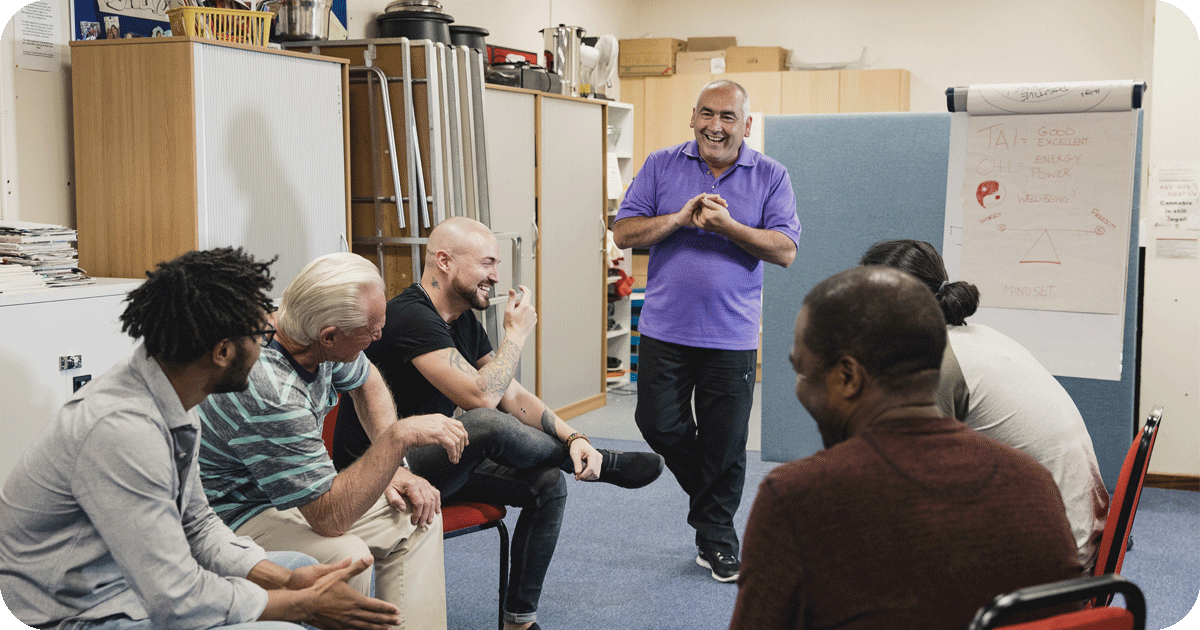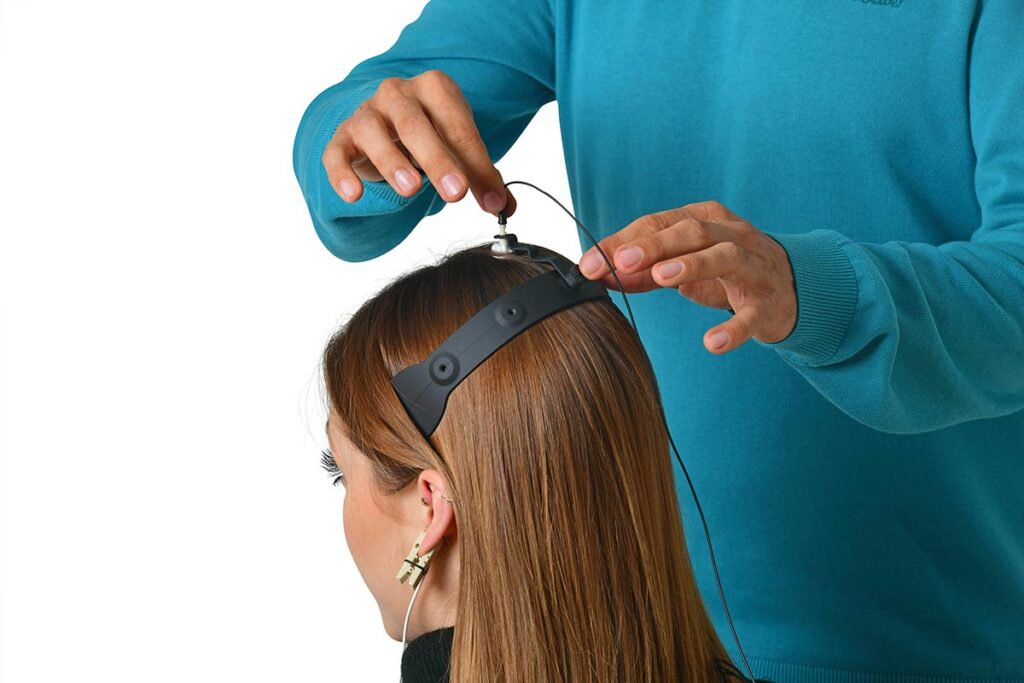Six Stages of Substance Use Recovery
Properly recovering from substance use disorder is not something that happens overnight. In fact, the process requires a complete overhaul of your life and can take several months, if not years. Then, you’ll need to continue putting in the work to stay in recovery moving forward.
There are six clear stages of recovery, according to research.
Stage 1: Precontemplation
The first stage of recovery occurs even before an individual who is struggling with substance use disorder has acknowledged that they have a problem. They believe that their substance use is under control and will often refuse to listen to advice or guidance. They are also very unlikely to acknowledge any harm that is caused by their substance use or the behaviors linked to it.
Stage 2: Contemplation
This is when an individual realizes that they have a problem, though they may not admit it to others. Despite this realization and a genuine desire to get help, many will still not seek help because they do not know if they can complete a treatment program successfully. According to a 2020 report from the Substance Abuse and Mental Health Services Administration, only 1.4% of people with substance use disorder pursued treatment in the last year.
Stage 3: Preparation
The third stage involves the individual acknowledging their problem and beginning preparation to receive treatment. This may involve speaking with loved ones or professionals. Receiving support from family and loved ones is a significant indicator of success in long-term recovery, so these conversations are important. Once someone wants to begin their recovery process, they can discuss the next steps with their support, such as a treatment plan and logistics of seeking care.
Stage 4: Action
Once a decision has been made to seek treatment and begin the process of recovery, the next step is to take action. This stage will look different for each person depending on their needs. Most choose to enroll in an inpatient or outpatient treatment program, while some will simply complete a detox program. It is also important during this stage of recovery that the individual examines potential contributors to their substance use disorder, including mental health issues, so that they can be addressed with solutions like dual diagnosis treatment.
Stage 5: Maintenance and Relapse
This stage of recovery is often the true test for anyone struggling with substance use disorder. Once a treatment plan or program has been completed, those in recovery must continue the new habits and coping strategies that will help maintain recovery. Of course, this is not easy, and many people relapse and readjust before reaching the final stage.
Stage 6: Termination
The final stage is the ultimate goal of anyone recovering from substance use disorder. As evidence that their recovery has been successful, individuals in this stage are confident that they can live a happy and fulfilled life. This is considered long-term recovery.
Recovery from Substance Use Over Time
There is no one size fits all treatment plan for recovering from substance use disorder, and thus more than one way to break down the various stages of recovery. Depending on the substances an individual uses and what their goals are for long-term recovery, the plan is individualized to meet their needs. Here’s another way of thinking about what recovery might look like for you.
Recovery at One Day
The first day of recovery can be the most challenging for many people because of the physical symptoms of withdrawal. Many times, these symptoms can increase the desire to use the substance again, just to relieve withdrawals. However, it is safest to experience withdrawals in the care of a professional substance use disorder team. One of the advantages of community-based settings is to reduce the severity of withdrawal.
Depending on the substance, withdrawal symptoms may be the opposite of the effects of the drug.
Some of the most common symptoms people experience are:
- Insomnia
- Sweating
- Hot flashes
- Cold flashes
- Nausea
- Diarrhea
- Delirium
- Increased heart rate
Recovery at One Month
For most people, the harshest withdrawal symptoms should pass after one to two weeks in medically assisted detox, but for some, it may take longer. At one month of recovery, many individuals have completed their chosen treatment program, but many others are still involved in at least an outpatient program. These programs often include individual and group therapies to provide additional support for those recovering. If treatment and recovery have been successful up to this point, some may choose to relocate to a new facility that encourages sober living, while others may transition back to their home life.
Recovery at One Year
This is a major milestone, and many people recovering from substance use disorder feel accomplished once they meet the one-year mark. Even long-term treatment programs are often complete by this point, and individuals have often transitioned out of sober living as well. Once someone recovering from substance use disorder has reached one year, they often feel confident in their sobriety. However, it is still important to maintain a support system through therapy and other support groups.

Pinterest: 1 year Celebration Cake for Sobriety
Reaching Long-Term Recovery from Addiction
Whether you look at recovery as a series of stages or simply consider the changes you experience during the first year of recovery, what are your options for pursuing it for yourself? If you’ve decided it’s time to consider treatment, there are a few common options to choose from. Short-term treatment programs often last less than three months but can be relatively intensive during the program. Long-term treatment often refers to programs that last 90 days, at minimum. Both types can be inpatient or outpatient, depending on the specifics, but they may differ in how they approach lasting recovery.
Short-Term Programs
Completing a short-term program does not mean that the individual has no support once that treatment program is completed. Rather it serves as an introduction of sorts to recovery and what it will mean to be in recovery once the program has ended. In these treatment programs, people often encounter a 12-step program for the first time, may begin taking medication to attenuate withdrawals and address underlying mental health issues, and then may choose to relocate to a sober living home to continue recovery.
Long-Term Programs
Depending on the needs of the individual, additional time spent focusing on recovery is often necessary. After completing the same tasks presented in a short-term program, long-term programs serve to help the individual address underlying issues and apply recovery tools to their own life.
Some of the common tasks required by a long-term treatment program may include:
- Involvement in a 12-step program
- Removing toxic relationships
- Building positive, healthy relationships
- Continued therapy and medication
- Restoration of relationship with family
- Seeking outlets that are healthy
- Focus on being active
- Volunteering
Applying the strategies learned in a treatment program supports an individual’s long-term recovery and provides resources to help avoid relapse. In addition, long-term recovery is easier to maintain if there is a strong, healthy support system in place.
What Does Long-Term Recovery from Addiction Mean?
While recovery is different for everyone, substance use disorder experts generally consider someone to be in long-term recovery once they have reached the five-year mark. While this may seem impossible right now, know that long-term recovery is possible, provided you are able to learn recovery tools during treatment and apply them after treatment has concluded. In simplest terms, the best way to achieve and maintain long-term recovery is to have a plan in place for how you will apply the guiding principles of recovery in your own life.
So, what are the guiding principles of recovery? Five things that can help achieve and maintain long-term recovery are as follows.
1. Get Involved in Support Groups

Sharing experiences and struggles with people who can understand what you are dealing with can significantly bolster your recovery. Being involved in support groups that offer encouragement, resources, and both practical and emotional support can help individuals who struggle with substance use maintain long-term recovery.
There are many different types of support groups available. If you are interested in a recovery program that is centered on spirituality, you may find success continuing a traditional 12-step program after you leave treatment. Your treatment center may offer a 12-step group or other support groups via alumni services so you can continue to receive support from others in your situation.
Most experts suggest being involved in a support group at least once each week. However, it may be better to attend more regularly, especially immediately after you leave a treatment program. It is best to find a balance and a group dynamic that works for you.
2. Identify Things That Contribute to Your Substance Use
Substance use disorder cannot be properly treated unless you understand what contributes to your use. Whether you previously relied on substances for stress relief or as a way to self-medicate mental health issues, it is important to identify and treat the root causes. This should begin during your treatment program.
After you’ve completed treatment, having a solid understanding of what may lead to substance use provides a framework for successful long-term recovery. This is not a simple process, as it can be very difficult to pinpoint your triggers. Regular meetings with therapists or counselors can help with this process. They will likely use a variety of tactics and practices to help identify and treat any trauma or mental health conditions that exacerbate your struggle with substance use disorder.
3. Develop a Healthier Lifestyle
Successful recovery includes making significant changes to your lifestyle, including making healthier choices.
These may include:
Healthy Foods
People who are struggling with substance use disorder often do not consider the nutritional contributions of the food they eat. Adding healthy foods like fresh vegetables and fruits to your diet can help address existing physical issues. These choices will give you more energy and help you maintain your motivation.
Physical Activity
Choosing to include regular physical activity in your day can have a significant impact on your recovery. Physical activity is shown to decrease boredom and make you feel better about yourself, which can help you avoid a relapse. Staying active can be as simple as walking or biking every day as long as it is something you enjoy and can maintain.
Keep Yourself Busy
This does not necessarily mean filling every moment of your schedule, but rather finding things that you enjoy doing and find meaningful. Consider a creative outlet, such as cooking, writing, or art. Or, find a hobby that involves physical activity to combine two recommendations in one.
Get Good Sleep Regularly
Sleeping enough on a regular basis is important for the overall health of your body, especially if you are recovering from a substance use disorder. Falling asleep on time and waking up at a regular time each day can help your body regulate itself and stay healthy.
4. Stay Connected With Your Treatment Program
Many treatment programs provide a way for those who complete the program to stay involved. These groups can provide a way to stay connected with individuals who completed the program with you and give another avenue of support and encouragement. Since the others in the group are familiar with substance use and addiction recovery, they can offer insight and support when you are struggling and you can do the same for them.
5. Understand When Help Is Necessary
Long-term recovery is not something most people can do on their own. Even if you’ve done everything right while pursuing your recovery, you may still struggle with cravings and other challenges. When these issues crop up, it is important that you can identify when you need help.
If you are able to identify and understand the things that may lead you to a relapse, you are more likely to avoid a relapse occurrence. It is important to have support in place to help during these times, whether it is a friend, a therapist, or a support group. Asking for help is a brave choice, and there is no problem admitting you need help maintaining recovery.
Working Towards Long-Term Recovery from Addiction is Worth the Effort

Long-term recovery from a substance use disorder will require at least five years of work, applying the principles of recovery in your own life. It can be a difficult process, but it is worthwhile. With proper support, a solid substance use and mental health treatment plan, and the insight necessary to establish and achieve your personal recovery goals, you can reach long-term recovery and live a fulfilling life.
Sources
- https://www.ncbi.nlm.nih.gov/pmc/articles/PMC1852519/pdf/nihms-18188.pdf
- https://www.samhsa.gov/data/sites/default/files/reports/rpt35325/NSDUHFFRPDFWHTMLFiles2020/2020NSDUHFFR1PDFW102121.pdf
- https://www.aa.org/the-twelve-steps
Therapist
Cristina is a bilingual clinical social worker with over 10 years experience working in the field of mental health and addiction, both in the non profit and private sectors. Cristina received a diploma as a certified substance abuse counselor before returning to school to receive a Masters Degree in Social work at USC. Cristina uses a client-centered trauma focused approach in her treatment modalities, blending evidenced based practices such as CBT and EMDR to create an individualized treatment plan to support each client’s unique needs.
Learn More About Cristina Bonilla, ACSW

























